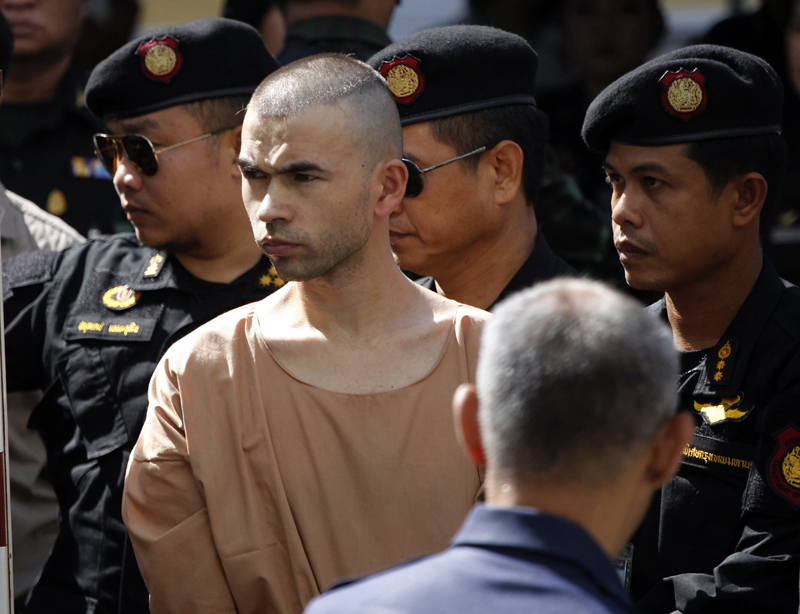Thailand indicts 2 for deadly Bangkok bombing
BANGKOK: A military court in Thailand on Tuesday indicted two men police say carried out a deadly August bombing at a central Bangkok shrine that left 20 people dead and more than 120 injured.
The Aug. 17 blast at the popular Erawan Shrine was one of the most serious acts of violence in Bangkok in decades. Authorities have declined to call it an act of terrorism out of apparent fear that it would hurt the country's huge tourism industry.
The two suspects, identified as Bilal Mohammad and Mieraili Yusufu, were indicted on 10 counts — none of them terrorism charges — connected to the blast. The charges included conspiracy to explode bombs and commit premeditated murder, said defense lawyer Chuchart Kanpai.
Both men have been described by officials as ethnic Uighurs (pronounced "wee-ghurs") from western China's Xinjiang region. Officials say the blast was carried out by a people-smuggling gang seeking revenge on Thai authorities for cracking down on their operation.
Thai officials say there was no political or religious motive behind the attack but skepticism about the police explanation on the shrine attack has abounded because of leaks, contradictions, misstatements and secrecy surrounding the investigation.
The two men have been held at an army base since their arrests in late August and early September.
Media was not allowed to enter the military court Tuesday and the indictments took place before the two suspects arrived, said Chuchart, their lawyer.
They are being tried at a military court on an army base in Bangkok because cases of "national security" have been handled by the military since last May, when the army seized power in a coup from an elected government.
Former National Police Chief Somyot Poomphanmuang said before his retirement in September that the case against the two suspects was supported by closed-circuit television footage, witnesses, DNA matching and physical evidence, in addition to their confessions.
Security camera footage from the Erawan Shrine showed a man wearing a yellow T-shirt who sat down on a bench at the outdoor shrine, took off a black backpack and then left it behind as he stood up and walked away. Time stamps showed he left the shrine just minutes before the blast occurred, during evening rush hour as the area in central Bangkok was filled with people.
Police believe that Bilal is the yellow-shirted man who planted the bomb and Yusufu is believed to have detonated the bomb.
Police said they have confessions from the two, and Bilal's lawyer says his client admitted planting the deadly bomb at the behest of another suspect who remains a fugitive. He says Bilal was induced to carry out the action by a promise that his emigration to Turkey would be expedited.
Early speculation about the bombing suggested it might be the work of Uighur separatists who were angry that Thailand in July forcibly repatriated more than 100 Uighurs to China, where it is feared they face persecution. The theory was bolstered by the fact that the Erawan Shrine is popular among Chinese tourists, who figured prominently among the victims of the bombing.
Some of the 15 other suspects are Turks, with whom Uighurs share ethnic bonds, and Turkey is home to a large Uighur community. Beijing charges that some Uighurs are Islamist terrorists and that some have been smuggled out of China to join Islamic State fighters in Syria, via Turkey.






